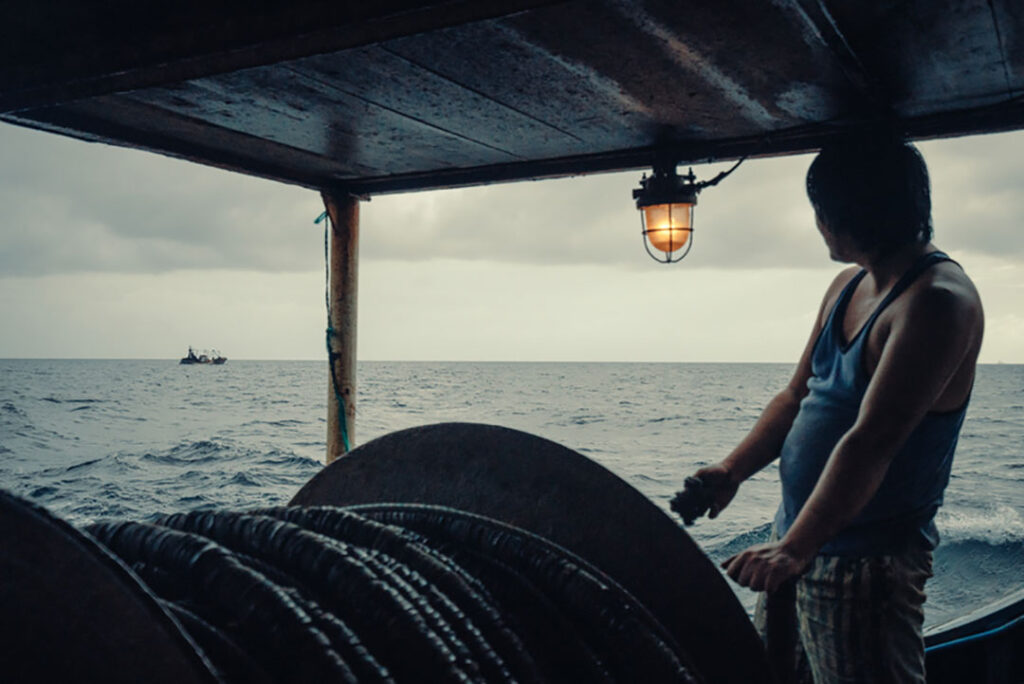ADF STAFF
The fishing nets hauled aboard a Chinese trawler swelled with sardinella, a tiny silver fish that is a source of food and income in Ghana.
Some of the catch was dead and thrown overboard, and much of it was transferred from the trawler to a large canoe capable of carrying about 450 times more fish than an artisanal fishing canoe. The Chinese trawler was fishing in an area designated for artisanal fishermen. The transshipment of fish at sea, known as “saiko,” is illegal in Ghana.
In 2017, saiko took 100,000 tons of fish from Ghanaian waters, costing the country millions of dollars in revenue and threatening food security and jobs, according to the Environmental Justice Foundation.
“At a certain point, there won’t be enough fish to sustain those who rely on fishing for their subsistence or as their main livelihood, and that part of the population is not well positioned to move overseas to seek new opportunities,” Tabitha Mallory, an affiliate professor of international relations at the University of Washington and chief executive officer at China Ocean Institute, told ADF in an email.
“Therefore, host countries like Ghana may want to carefully consider whether they want foreign fleets in their waters — not just the Chinese, but other countries too,” Mallory added.
More than 200 coastal villages in Ghana rely on fishing as their primary source of income. There has been a drop in average annual income of up to 40% per artisanal canoe in the past 15 years or so, according to the foundation.
“A scientific and technical working group has made us to understand that saiko, as it is being practiced now, is the most destructive form of [fishing] and is actually driving the collapse of the industry,” Nana Pager, 38, whose family has fished Ghana’s waters for generations, told Ghana’s Joy News.
“An analysis of a slab of saiko by the Department of Fisheries and Aquatic Sciences revealed that over 90% of the catch [was] juvenile,” Pager said.
Catching large quantities of juvenile fish quickly depleted Ghana’s fish populations.
“The fish are taken before they can reproduce,” Mallory told ADF. “Ghana’s catches have been in decline for the past two decades, and the trend correlates with the rise in saiko over the same time period.”
Nana Anobil, a fisherman in Abandze, told Joy News that much larger Chinese trawlers routinely encroach far into waters designated for artisanal fishermen and rake in huge hauls with prohibited nets designed to sweep up huge loads of small fish. He said the Chinese trawlers often operate with expired licenses.
“These people are really worrying us, and [our] government should do something about it for us,” Anobil said.
Mallory said China is aware of the effects its distant-water fishing fleets have on Ghana’s fishing industry, as Beijing has banned domestic commercial fishing in many areas. She said China’s government is not likely to pull its distant-water trawlers from Ghana’s waters anytime soon.
“A huge issue is the deep pockets of the Chinese government,” Mallory said. “They provide the most fisheries subsidies in the world to their fleet; an estimated one-fourth of global total harmful fisheries subsidies comes from China. So, as long as the money is there, you’ll likely see Chinese companies seeking fish.”

